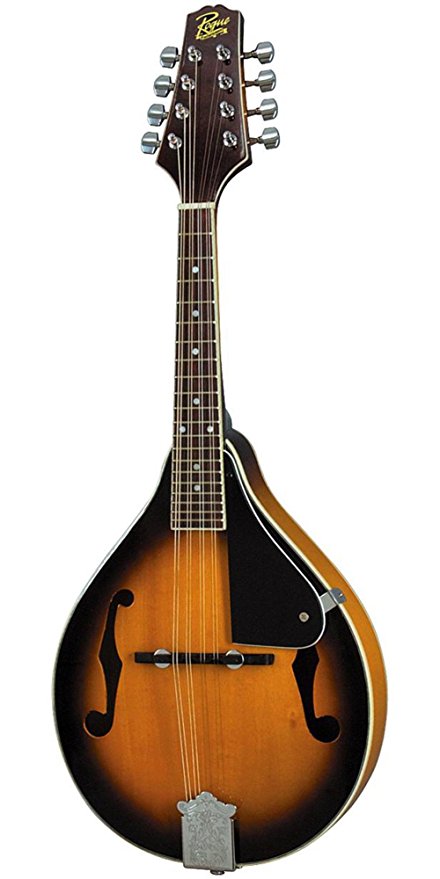
mandolin [man-dl-in, man-dl-in] ExamplesWord Origin noun
- a musical instrument with a pear-shaped wooden body and a fretted neck.
Origin of mandolin 1700–10; Italian mandolino, diminutive of mandola, variant of mandora, alteration of pandora bandore Related formsman·do·lin·ist, noun Examples from the Web for mandolin Historical Examples of mandolin
On a low couch piled with cushions lay Helen’s mandolin and a banjo.
Harriet Stark
Silly child, to start at a Mandolin shaking his head and beard at you.
Tales And Novels, Volume 8 (of 10)
Maria Edgeworth
Nasmyth rose and swept his knife-haft across the strings of the mandolin.
Harold Bindloss
He seized his mandolin, slung it round his neck, and leant against the bulkhead.
Joseph Conrad and F.M. Hueffer
“All right, I’ll be glad to come,” answered the mandolin player.
Arthur M. Winfield (Edward Stratemeyer)
British Dictionary definitions for mandolin mandolin mandoline noun
- a plucked stringed instrument related to the lute, having four pairs of strings tuned in ascending fifths stretched over a small light body with a fretted fingerboard. It is usually played with a plectrum, long notes being sustained by the tremolo
- a vegetable slicer consisting of a flat stainless-steel frame with adjustable cutting blades
Derived Formsmandolinist, nounWord Origin for mandolin C18: via French from Italian mandolino, diminutive of mandora lute, ultimately from Greek pandoura musical instrument with three strings Word Origin and History for mandolin n.
1707, from French mandoline, from Italian mandolino, diminutive of mandola, a larger kind of mandolin, altered from Late Latin pandura “three-stringed lute,” from Greek pandoura, which is of unknown origin.
 Liberal Dictionary English Dictionary
Liberal Dictionary English Dictionary